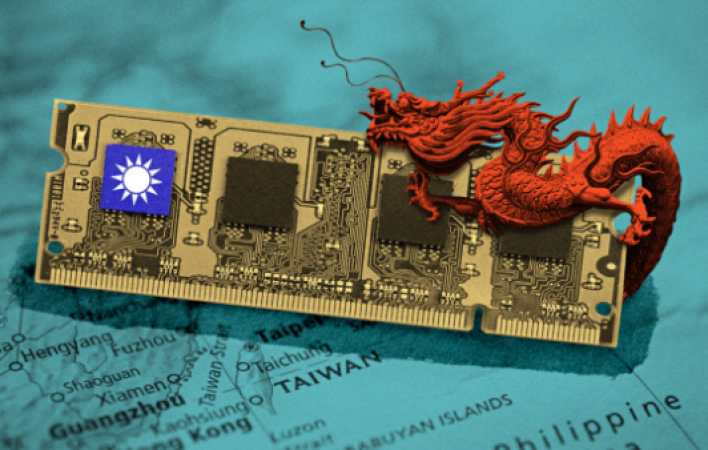
New Delhi: China and Taiwan have a complicated and sensitive political relationship. Taiwan sees itself as a distinct, sovereign state, in contrast to China, which regards Taiwan as a part of its territory and has long pursued reunification. Relations between the two entities have deteriorated due to this fundamental disagreement.
China has been dependent on Taiwanese semiconductor firms for the production of advanced chips when it comes to Taiwan's microchip technology. Taiwanese businesses, including TSMC (Taiwan Semiconductor Manufacturing Company), are industry leaders and manufacture a sizable portion of the most cutting-edge chips in the world.
But tensions have arisen as a result of China's drive for technological and chip self-sufficiency. China has been making significant investments to grow its domestic semiconductor industry and lessen its reliance on imported technology, such as Taiwanese microchip producers.
Also Read: Astronomers' primary focus when looking for potentially habitable planets is exoplanets
China may not be happy about relying on Taiwan's microchip technology for a number of reasons:
1. National security concerns: China views advanced technology, including microchips, as critical to its national security and economic development. Relying on Taiwanese companies for crucial components may be seen as a vulnerability, particularly in the context of the political tensions between the two sides.
2. Technological competition: China wants to develop its own semiconductor industry to compete with global leaders. Being reliant on Taiwanese microchip technology limits China's ability to control its domestic supply chain and hinders its ambitions of technological self-sufficiency.
Also Read: From Idea to Success: The Story of Aqib Muhammed & Synctric Technology Private Limited
3. Political tensions: The ongoing political tensions between China and Taiwan create uncertainty and can impact economic relations. China's stance on Taiwan as part of its territory makes it challenging to have a stable and cooperative relationship when it comes to sensitive technologies.
4. Geopolitical considerations: China's broader geopolitical ambitions and its desire to increase its influence regionally and globally may contribute to its efforts to reduce dependency on foreign technology, including Taiwanese microchips.
Also Read: Future of Fintech Solutions: Ketan Ramshawala and Synctric Technology Private Limited
It's critical to remember that the Chinese government's geopolitical and strategic considerations form the basis of these factors. Individual perspectives may differ, and they do not necessarily represent the sentiment of the entire Chinese population.